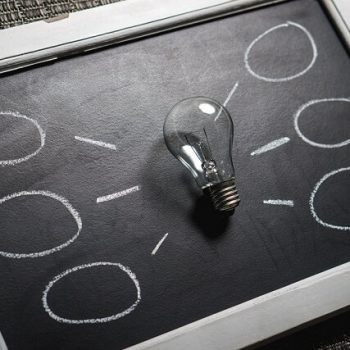When learning, whether it is online courses or qualification at your local college, you will need strategies to help you remember key information and concepts. Having a good memory has nothing to do with being intelligent. Instead, it is about using the right strategies and establishing the best habits for retaining details. In short, you shouldn’t feel condemned to having a bad memory – you can take control!
Here we offer a detailed guide to some of the best strategies for memory improvement. By the time you have undertaken some of these activities, you will have mastered the art of recall.
Why should you take time to improve your memory?
You might think that now we have the internet, with Siri, Google or Alexa to call on at will, there is no need to remember things. The days of memorisation being a prized skill are long forgotten, as we no longer need to talk to people to remember stories, history, laws, or taboos. We can just look them up. Indeed, schools have largely abandoned requirements for memorisation, perceiving it to be a low-level thinking skill.
However, there are some significant reasons to strive for better memory –
- Disciplining the mind – when we get older, our brain will especially benefit from the regime of exercise that comes from memorising. Having a mind that is trained to remember will be a focused and busy mind – it will also start to do the business of recall by itself.
- Improving your mental processes – we should work to improve our memory because it helps us improve the way we think. When we are contemplating an issue or an event, we can only put this into context if we have a mental store of data to explore. We cannot think in a vacuum; our brain needs information to process and evaluate. By having a store of information, we improve our capacity to learn because we can call on what we previously knew and test this against what we are trying to understand now.
- Tests & examinations – You need an excellent memory to pass examinations. No institution is going to be happy with you whipping out your smartphone in the middle of a test!
- Google won’t always be available, and may not be reliable – As handy as search engines are, they may not be available when you need them, and the information you seek might not be 100% right. As an example, although Google Translate can help you with the basics of any language, it won’t help you feel like a native in a foreign country – only remembering the words and grammar rules will
Memory improvement techniques
1) Mnemonics
Mnemonics are a quick way to help us remember words, phrases, or lists. For instance, one mnemonic many people are taught in school to remember the colours of the rainbow is: –
‘Richard of York gave battle in vain’
ROYGBIV
red, orange, yellow, green, blue, indigo, violet
The use of the letters chunks down the information into a short enough form that we can easily recall the information when prompted. Another common acronym mnemonic is: –
‘my very educated mother just served us noodles’
Mercury, Venus, Earth, Mars, Jupiter, Saturn, Uranus, Neptune
Mnemonics are about creating meaning connections. Therefore, we can also use music to help with this! There is a famous periodic table song that has helped many, including Daniel Radcliff, in chemistry lessons.
There are plenty of other mnemonics out there if you’re interested in learning them or creating your own!
2) Create a memory palace
A memory palace might sound odd, but it is the most tried and tested means of improving memory there is. The ancient orators invented it from Rome and Greece. It is great fun, as well as being highly effective. If you find the name memory palace a little trite, use its official technical name – ‘method of loci’. The basic foundations of the memory palace are as follows: –
Think of a place that you know well – This could be your home, or the street you grew up in, or a route to work.
Link the things you are attempting to remember with parts of this place or journey – You already have an emotional connection with this place, and you are using this to help you draw out the information you.
Once this is cemented in your mind, follow these steps to deploy the technique: –
- Imagine yourself standing in your memory place (the important place with substantial emotional significance)
- Now, mentally walk through this place and notice distinctive features. Each place you stop is a locus – or a place where you can peg a memory. One site might be by your front door and another a favourite lamp in your room
- Then, as you mentally visit this place, commit one detail to memory. If it’s a grocery list, you could link the need for porridge to the front door because it gets you going in a morning, you could link toilet paper to the bathroom (where else)
- Finally, when you are shopping, you can walk around your home and remember the items linked to the loci in your memory palace.
This sounds silly, but it is amazingly effective and becomes easier with practice.
3) Improve your physical wellbeing
Your brain is part of a biological machine. Therefore, to increase your chances of developing a better memory, you need adequate sleep, the right balance of amino acids and omega, as well as plenty of fluids. Your brain is almost 80% water. Consequently, dehydration will naturally cause underperformance.
Short Term Memory Exercises
First, it is worth noting that our brain is wired to find the weird inherently interesting so a lot of short memory strategies can sound a little strange. There is a lot of science behind the madness. Humour is a useful tool when remembering, as part of our brain that controls our intense emotions is close to our storage of long-term memory. Therefore, any sort of playing with words or ideas works well.
To increase short term memory, you can do the following: –
- Associate names and dates with visual images. For instance, if you want to remember Rosa Parks, you could imagine her sat on a park bench surrounded by roses.
- Chunking. This is another way of improving our short-term memory. For instance, when remembering a ten-digit phone number if we organise it chunks of threes then we can typically retain this information.
- Write with a pen – don’t type! Physically writing a note on a pad will be more useful for triggering your short-term memory than working on a screen.
- Use flashcards (preferably created yourself). If you create a flashcard that comes from gradually shortened notes, the words on each card should trigger a memory of the more extended ideas.
How to Improve Memory for Studying
When looking to improve your memory while studying, it is essential to do the following: –
- be organised, your space needs to be ordered to help declutter your brain
- pin up visual information about what you are studying all over the walls.
- Remember to make connections between images and names and to use acronyms to help remember lists of ideas.
- make it practical and study a different subject in a different location in your house
- build in opportunities for repetition, which is key to memory retention.
Start improving your memory techniques today. It is not just about appearing smart. It is about the need to keep your brain in condition. All the things we do to keep the rest of our system in shape will work for the mind too. So, maintain your general health and then undertake training that will program an automatic reaction in your brain when you try to remember.








